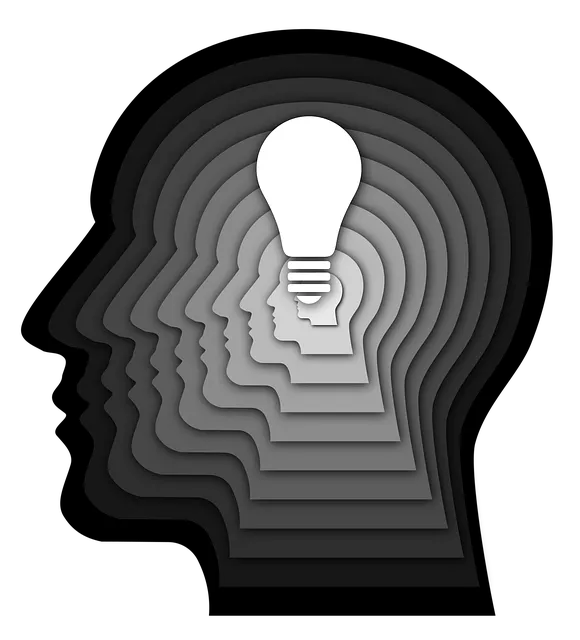Lafayette Kaiser Permanente mental health providers focus on holistic mood regulation using evidence-based techniques like Cognitive Behavioral Therapy (CBT), mindfulness meditation, and lifestyle changes. They emphasize self-awareness, coping strategies, and inner strength to manage stress, anxiety, and maintain emotional balance. CBT helps break down negative thought patterns, while mindfulness practices cultivate present-moment awareness and reduce stress. Lifestyle adjustments, including nutrition, exercise, and sleep, are key to improving overall well-being, empowering individuals to proactively manage their mental health through Lafayette Kaiser Permanente's expert guidance.
Discover effective mood regulation strategies as recommended by Lafayette Kaiser Permanente mental health providers. This comprehensive guide explores various techniques designed to help you manage your moods, including cognitive behavioral therapy (CBT) for emotional control, mindfulness and meditation practices for stability, and lifestyle changes that enhance nutrition, exercise, and sleep – all vital components for optimal mental well-being.
- Understanding Mood Regulation: An Overview by Lafayette Kaiser Permanente Mental Health Providers
- Cognitive Behavioral Therapy (CBT): A Powerful Tool for Managing Moods
- Mindfulness and Meditation Techniques to Stabilize Your Emotional State
- Lifestyle Changes: Nutrition, Exercise, and Sleep for Improved Mood Regulation
Understanding Mood Regulation: An Overview by Lafayette Kaiser Permanente Mental Health Providers

Mood regulation is a complex process that involves understanding and managing one’s emotional state. According to Lafayette Kaiser Permanente mental health providers, it is a crucial aspect of overall well-being. They emphasize that recognizing and accepting one’s emotions are the first steps towards effective mood regulation. By fostering self-awareness exercises, individuals can gain insights into their triggers and develop strategies to navigate difficult emotions.
Lafayette Kaiser Permanente mental health professionals suggest that building inner strength development is another vital component. Techniques such as mindfulness meditation, cognitive behavioral therapy, and relaxation practices empower individuals to respond to stressful situations with calmness and clarity. Moreover, these methods contribute to anxiety relief, enabling people to maintain a balanced mood throughout their daily lives.
Cognitive Behavioral Therapy (CBT): A Powerful Tool for Managing Moods

Cognitive Behavioral Therapy (CBT) is a highly effective strategy for managing moods and has been extensively utilized by Lafayette Kaiser Permanente mental health providers. This therapeutic approach focuses on identifying and changing negative thought patterns that contribute to emotional distress, providing individuals with tools to regulate their emotions more effectively. By breaking down complex thoughts into manageable components, CBT empowers people to challenge and reframe them, leading to improved mood regulation and enhanced overall well-being.
Through CBT, patients learn valuable skills such as risk management planning for mental health professionals, which enables them to anticipate triggers and implement coping strategies proactively. This proactive approach not only helps in managing existing mental health conditions but also boosts confidence and self-esteem, allowing individuals to lead more fulfilling lives. Lafayette Kaiser Permanente’s commitment to evidence-based practices ensures that their mental health providers are well-equipped to deliver CBT, providing a powerful resource for those seeking effective mood regulation strategies.
Mindfulness and Meditation Techniques to Stabilize Your Emotional State

At Lafayette Kaiser Permanente mental health providers, we emphasize the power of mindfulness and meditation techniques to stabilize your emotional state. These practices, rooted in ancient wisdom, teach individuals to cultivate present-moment awareness, enabling them to better understand and manage their emotions. By focusing on the breath and observing thoughts without judgment, one can reduce stress and anxiety, fostering a sense of inner calm and emotional balance.
Compassion cultivation practices and mind over matter principles play a significant role in emotional regulation. Through mindfulness meditation, individuals learn to cultivate non-judgmental awareness, which helps in recognizing and accepting their emotions as they are. This process allows for a more nuanced understanding of one’s emotional responses, promoting healthier coping mechanisms. Over time, these techniques can transform the way we relate to our feelings, leading to improved emotional regulation and overall well-being.
Lifestyle Changes: Nutrition, Exercise, and Sleep for Improved Mood Regulation

Lifestyle changes are powerful tools for individuals seeking to enhance their mood regulation capabilities, as endorsed by Lafayette Kaiser Permanente mental health providers. Nutrition plays a significant role; incorporating nutrient-rich foods and staying hydrated can positively impact brain chemistry and overall emotional well-being. Incorporating regular physical activity is another effective strategy. Exercise releases endorphins, often referred to as ‘feel-good’ hormones, which can reduce stress and improve mood. Additionally, prioritizing quality sleep is essential for emotional balance; it allows the body to restore and rejuvenate, contributing to better mental resilience.
These lifestyle changes are supported by various empirical research, including studies related to mental health policy analysis and advocacy. By promoting self-care practices like mindful eating, regular exercise routines, and adequate sleep, individuals can take proactive steps towards managing their emotional health. Such strategies not only foster personal growth but also contribute to a more holistic approach to mental well-being, where empathy building strategies and self-awareness exercises are integral components of overall wellness.
Lafayette Kaiser Permanente mental health providers offer a comprehensive approach to mood regulation, combining evidence-based practices like Cognitive Behavioral Therapy (CBT) with mindfulness techniques and lifestyle modifications. By integrating these strategies, individuals can gain greater emotional stability and improve their overall well-being. Whether it’s through CBT’s structured framework or the calming effects of meditation, there are tools available for everyone. Adopting healthy nutrition, regular exercise, and adequate sleep further reinforce these practices, creating a holistic approach to managing moods effectively.





